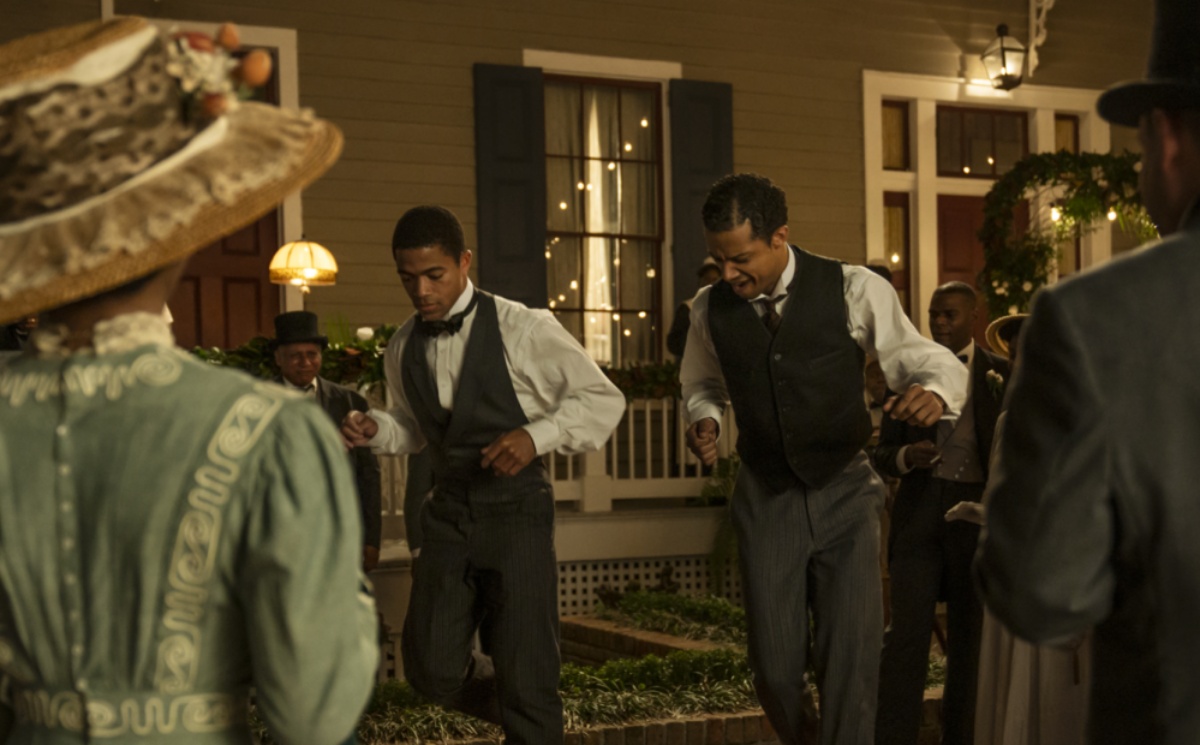‘Interview With the Vampire’: Louis’ Blackness Fits Into Anne Rice’s World & Enriches It

Currently, AMC’s Interview with the Vampire is delivering. Not only is it throwing away subtext and leaning into the gay vampire angst with pepperings of comedy, but the show is also well made and accurate to the themes Anne Rice created in the book. There have been a few changes, such as the time in which these events happen, but of course, there are still those complaining about the “woke” casting of Jacob Anderson as Louis de Pointe du Lac.
Sigh. On the one hand, people complaining about “wokeness” in a book series about sensitive gay vampires is genuinely foolish. Yet, it gets even more foolish when you think about how Anne Rice herself would play with elements of the “tragic mulatto” and free people of color in texts like The Feasts of All Saints (1979). The Mayfair Witches canon has a section of the powerful witches within the Mayfair family mixed with the heritage of enslaved people.
Because many pieces of Rice’s work take place, or have their origins, during a time when slavery existed, there was racial and ethnic mixing.
When it comes to Louis in the novels, the character is the son of a plantation owner and takes over that position once his father dies. While this is changed in the show, there is nothing unrealistic about Louis being mixed race and still having that position. There were slave owners of Black heritage, and there were white plantation owners who put their mixed raced children in positions of power. This didn’t keep them from being victims of racial prejudice. Anne Rice would be aware of this, and therefore, nothing is “woke” by having Louis be Black.
Black people exist. New Orleans itself has a very complex relationship to mixed-race people of color that situates itself for a character like Louis to exist in this setting. And most importantly, Jacob Anderson is fantastic in the role. If you thought Game of Thrones was his range, whoo, you’re gonna be happily mistaken. He has all the self-loathing, guilt, and bittersweet attraction to Lestat that makes his character work.
If race isn’t supposed to matter and it is about having the best person for the job (as the people making these complaints so often claim), why does Jacob Anderson’s race matter more than him capturing the character? If you love this series, would you deny the enjoyment of seeing it brought to life well because a character is Black? That feels like spite for spite’s sake, and the only ones losing out are those trying to act as though Louis is defined by his whiteness. He is defined by being a sad boy who can’t fully take responsibility for his actions because he hates his ex.
Anne Rice wasn’t some “woke” author who crafted a perfect gay, progressive world filled with racial mixing. She had some problematic ways of writing people of color, but that doesn’t mean that she wouldn’t understand the evolution of her text in the modern era. And whatever issues she might have had, I think that, just as with her being worried about Tom Cruise as Lestat back in the film adaptation in the ’90s, the quality would have erased any doubts.
(featured image: AMC)
Have a tip we should know? tips@themarysue.com